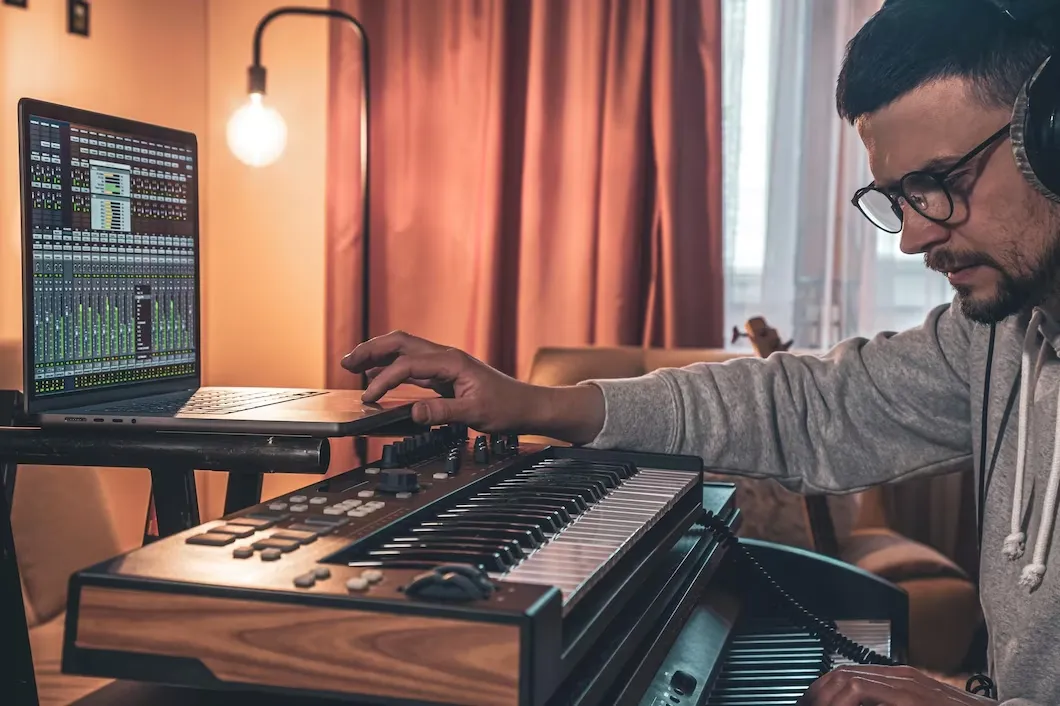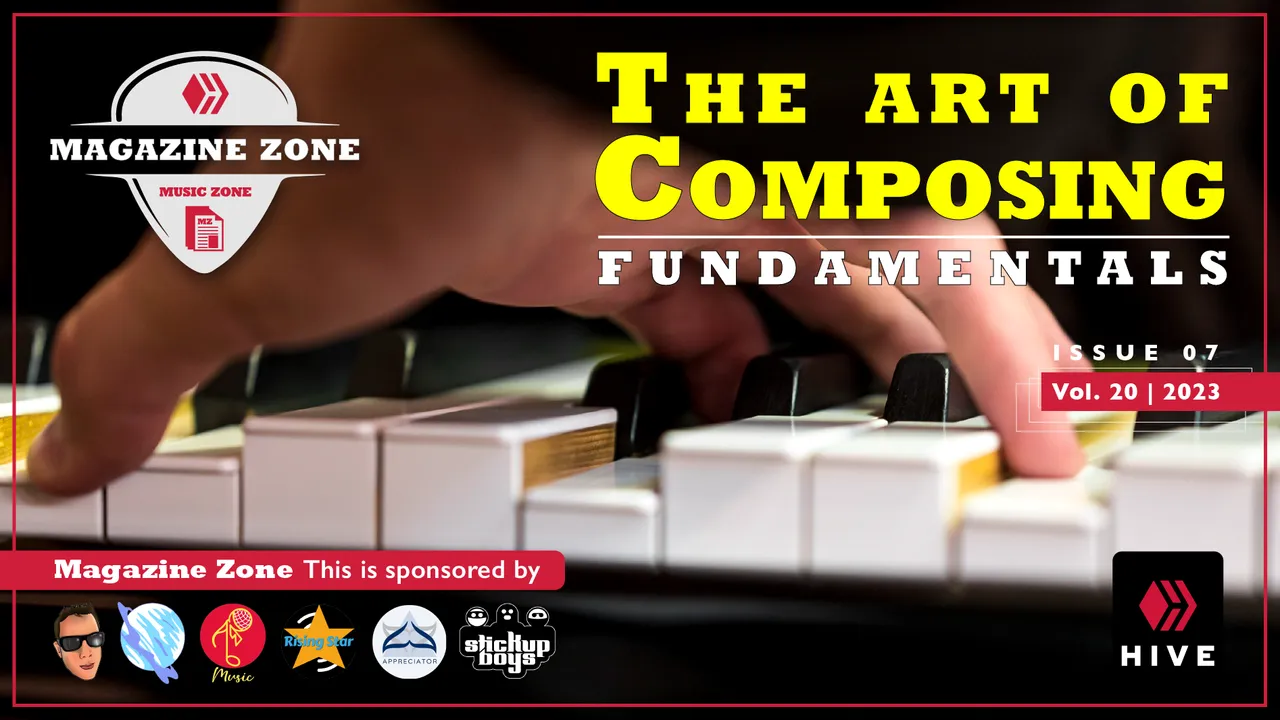
The art of Composing - Fundamentals
El arte de componer - Fundamentos
Generally, when we are consistently active in an activity that we love and enjoy doing, it is very normal that the activities related to it float in our mind. Sometimes, it is somewhat uncomfortable because in our day to day life we do other activities that divert our concentration a little bit from what we really want to be doing. Musicians have special days, many melodies are floating around in our minds with great fluidity, we think of rhythms, we sing isolated lyrics looking to create a concrete lyric; what we read, see and hear powers our imagination to develop our own songs. It is indeed a great opportunity to compose a song and it would be a waste to miss that great opportunity, however, it is essential to know how we start to organize the ideas, but more crucial is also to know how and where to finish.
Generalmente, cuando nos mantenemos activos de manera consistente en alguna actividad que amamos y nos da mucho gusto hacerla, es muy normal que las actividades relacionas con ello floten en nuestra mente. En ocasiones, resulta algo incómodo porque en el día a día hacemos otras actividades que nos desvían un poco de la concentración de lo que realmente queremos estar haciendo. Los músicos tienen días especiales, muchas melodías rondan en nuestra mente con gran fluidez, pensamos en ritmos, cantamos letras aisladas buscando crear una letra concreta; lo que leemos, vemos y escuchamos nos potencia la imaginación para desarrollar nuestras propias canciones. En efecto es una gran oportunidad para componer una canción y sería un desperdicio dejar pasar esa gran oportunidad, son embargo, es primordial saber cómo empezamos a organizar las ideas, pero lo más crucial es saber también como y dónde terminar.



There are many ways in which we can start composing a song, for each musician is different, the experience also counts, however, from Magazine Zone we want to leave some tips and suggestions that can help you, in addition to the contributions that can give the most experienced in the comments box. It will not be a step by step guide, but we will do our best to capture the necessary resources to compose our songs; we do not pretend it to be a bible or a straitjacket. The idea is that you can make your songs in a comfortable and organized way so you don't wear out your brain doing everything at once; creating a scheme is vital, that's why, for every musician is important the self-knowledge to understand your system and replicate it, the more you repeat it consciously, the more effective you will be in each new song you work on.
Son muchas las maneras en la que podemos empezar a componer una canción, para cada músico es distinta, la experiencia también cuenta, sin embargo, desde Magazine Zone queremos dejarles algunos tips y sugerencias que puedan ayudarles, además de los aportes que puedan dar los más experimentados en la caja de comentarios. No será una guía paso a paso, pero si haremos el mejor esfuerzo por plasmar los recursos necesarios para componer nuestras canciones; tampoco pretendemos que sea una biblia ni una camisa de fuerza. La idea es que tus temas los puedas hacer de manera cómoda y organizada para no desgastarte el cerebro haciendo todo a la vez; crearse un esquema es vital, por eso, para cada músico es importante el autoconocimiento para entender su sistema y replicarlo, mientras más lo repitas de manera consciente, más eficaz serás en cada canción nueva en la que trabajes.
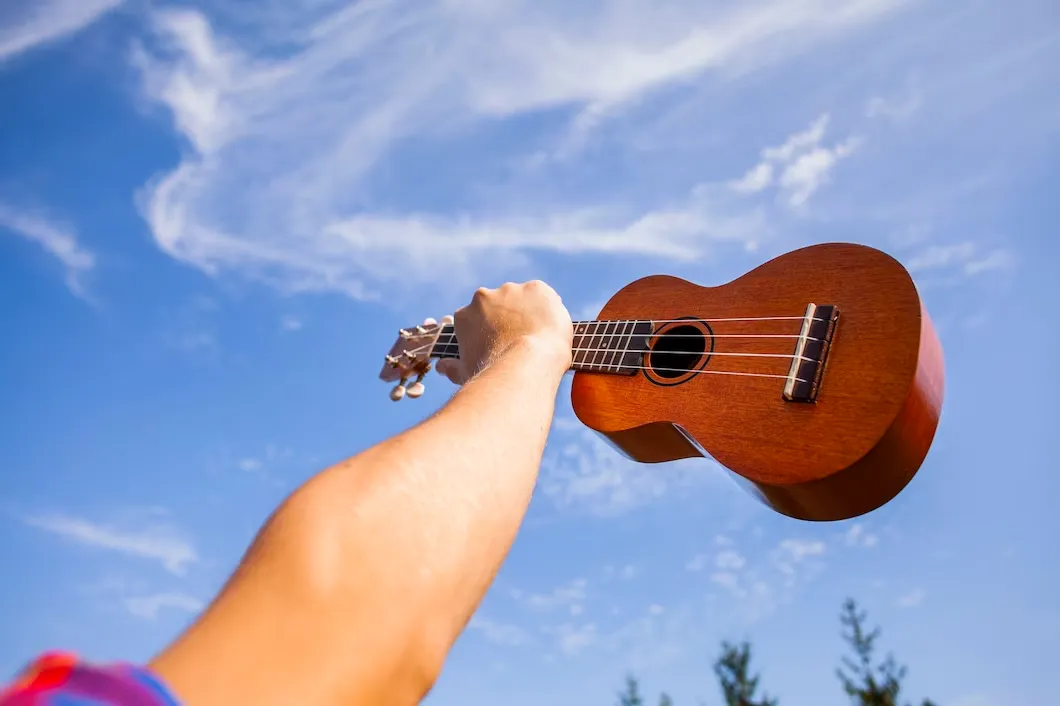
Inspiration has taken hold of you? Well, take advantage of it, it's a great moment, it's the perfect opportunity. Before sitting down with the instrument it is important that you have an idea of what you want to capture in your song, what you want to do and achieve; this will help you visualize the way, the chords you can use, the words that accurately describe your message, as well as the sound aesthetics that will accompany your composition. This point can be done quietly on your way to work or while performing any mechanical activity; with the first point fulfilled, you can sit down with the instrument of your choice, if you are one of those who work the music first; however, if you are one of those who prefer to have the lyrics before everything else, you know that finding a quiet and clear place for the lyrics to flow in the best way is important.
¿La inspiración se ha apoderado de ti? Pues bien, aprovéchala, es un gran momento, es la oportunidad perfecta. Antes de sentarte con el instrumento es importante que tengas una idea de lo que deseas plasmar en tu canción, lo que quieres hacer y lograr; plantearse esto te ayudará a visualizar el camino, los acordes puedes usar, las palabras que describan con exactitud tu mensaje, además, de la estética sonora que acompañará tu composición. Este punto lo puedes hacer tranquilamente de camino al trabajo o mientras realizas cualquier actividad mecánica; con el primer punto cumplido, ya puedes sentarte con el instrumento de tu preferencia, si eres de los que trabaja la música de primero; en cambio, si eres de los que prefiere tener la letra antes que todo, ya sabes que buscar un lugar tranquilo y despejado para que la letra fluya de la mejor manera es importante.



It may be the case that you contemplate the theme without lyrics, and it is totally and absolutely valid. The choice of the instrument is significant, since you must master it and feel comfortable with it, so that your mind is not thinking about two things at the same time. Your song should be written knowing what structure it will have, that way you will know what you can try and what not to capture this or that sound or idea, recognizing what makes you vibrate with what you want to transmit, that is to say, that goes in tune with the message you want to leave embedded in the song. In every moment of the composition it is important to be attentive in itself, otherwise we will not have the ability to perceive what we are building, if it does not make us feel what we want, it will be difficult for the listener of that song to feel something relevant.
Puede darse el caso que contemples el tema sin letra, y es total y absolutamente válido. La escogencia del instrumento es significativa, ya que este debes dominarlo y sentirte cómodo, de tal manera que la mente no esté pensando en atender dos cosas a la vez. Tu canción debes atenderla sabiendo que estructura tendrá, de esa manera sabrás que puedes probar y que no para plasmar tal o cuál sonido o idea, reconociendo lo que te hace vibrar con lo que deseas transmitir, es decir, que vaya en sintonía con el mensaje que deseas dejar incrustado en la canción. En cada momento de la composición es importante estar atento en sí mismo, de lo contrario no tendremos la capacidad de percibir lo que estamos construyendo, si no nos hace sentir lo que deseamos difícilmente, el que escuché esa canción sentirá algo relevante.
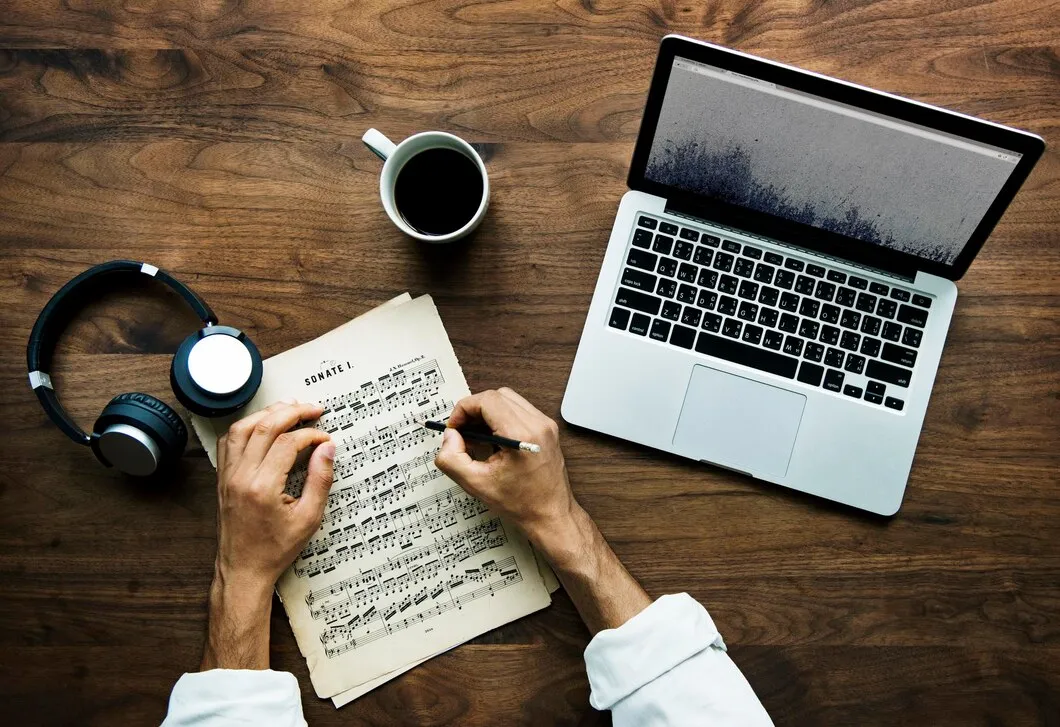
Source | Fuente
We move forward, the general idea is recreated in our brain, we allow ourselves to link the ideas and realize what we want to capture; this happens only through the fixed concentration on the idea, when we disperse it is difficult to link the ideas, of course, if we get congested, we must pause and return. It is also important to enjoy the process, when we do it with pleasure without forcing to obtain a quick result, there is no mental saturation and we can spend hours and hours concentrating on the composition. When you have a clear idea do not leave so much responsibility to your brain to remember it, write and make a draft of what you have, so you empty your brain and free it so that new ideas can descend. If in the first hours of composition nothing is clear, do not worry and do not put pressure on the result
Vamos avanzando, la idea general se va recreando en nuestro cerebro, nos vamos permitiendo enlazar las ideas y concretar lo que deseamos plasmar; esto ocurre solo a través de la concentración fija en la idea, cuando nos dispersamos es difícil enlazar las ideas, claro está que, si nos congestionamos, debemos hacer una pausa y volver. Es importante también disfrutar el proceso, cuando lo hacemos con agrado si forzar obtener el resultado rápido, no existe saturación mental y podremos pasar horas y horas concentrados en la composición. Cuando tengas clara la idea no le dejes tanta responsabilidad a tu cerebro de recordarla, escribe y has un borrador de lo que tengas, así vacías tu cerebro y lo liberas para que puedan descender las nuevas ideas. Si en las primeras horas de composición no deja nada claro, no te preocupes y no le pongas presión al resultado.
Structuring the song makes us improvise the fundamental parts in isolation, such as the verse and the chorus, we do not necessarily have to force the parts to follow each other, it is possible that you need some new music to link, a bridge perhaps, that is also valid, it all depends on your style, concept, intention and message of what you want to work. You have the theme almost ready, excellent, look for the way to record it or write it, do not leave everything to the mind, then think about how to finish it, there are thousands of ways to finish a musical theme. Composing has its magic, and the possibilities are endless, and none has to be better than another, the process is yours, and it is the best process.
Estructurar la canción nos hace improvisar las partes fundamentales de manera aislada, como lo son la estrofa y el coro, necesariamente no tenemos que obligarnos a que las partes se sigan, es posible que necesitas algo nuevo de música para enlazar, un puente quizás, eso también es válido, todo depende de tu estilo, concepto, intención y mensaje de lo que quieras trabajar. Tienes el tema casi listo, excelente, busca la manera de grabarla o de escribirla, no le dejes todo a la mente, luego piensa en cómo terminarla, existen miles de formas de terminar un tema musical. Componer tiene su magia, y las posibilidades son infinitas, y ninguna tiene que ser mejor que otra, el proceso es tuyo, y es el mejor proceso.



There are songs that come up in a matter of minutes in our head, we put our hands to work and they come up in an impressive way, they are very fast ideas, however, others are not so, you can last a long time to mature the idea; it is the paradox of composition, you can spend hours, weeks, even months and years working on a song to make it last only minutes. In constancy and action is the great secret of success.
Hay canciones que surgen en cuestión de minutos en nuestra cabeza, ponemos manos a la obra y surgen de manera impresionante, son ideas muy rápidas, sin embargo, otras no son tan así, puedes duras mucho tiempo para madurar la idea; es la paradoja de la composición, puedes pasar horas, semanas, hasta meses y años trabajando una canción para que dure solo minutos. En la constancia y en la acción está el gran secreto del éxito.
"When inspiration comes,
may it find you working."
"Cuando llegue la inspiración,
que te encuentre trabajando."

Pablo Picasso



A word from Jesús
Unas palabras de Jesús
 Por: Jesús Tortolero | @yisusth
Por: Jesús Tortolero | @yisusth The creation of a musical work is a process, but it is also the final result of the artist's inspiration. There are different functions and participations within the creative process, such as the author, who is basically the creator of the idea. We also have the case of the singer-songwriter who not only participates in the idea, but also performs it with his voice. We also have the arranger who performs the harmonization of the melody and adapts the idea to be played by different voices or instruments. The arranger can perform harmonization and orchestration functions. The copyist is the one who is in charge of writing the musical arrangement in scores. Composition is not a process that comes out of nowhere, there is always an influence from something or someone else. Inspiration often comes from the things we experience with our senses.
La creación de una obra musical es un proceso, pero también es el resultado final de la inspiración del artista. Existen diferentes funciones y participaciones dentro proceso creativo, como por ejemplo el autor, quien básicamente es el creador de la idea. También tenemos el caso del cantautor que no solamente participa en la idea, sino que también la ejecuta con la voz. Tenemos también el arreglista quien realiza la armonización de la melodía y adapta la idea para ser tocada por diferentes voces o instrumentos. El arreglista puede cumplir funciones de armonización y orquestación. El copista es el que se encarga de escribir en partituras el arreglo musical. La composición no es un proceso que surge de la nada, siempre hay una influencia de algo o alguien más. La inspiración muchas veces surge de las cosas que experimentamos con nuestros sentidos.
If you want to compose a song and you have no idea how to start. Some suggestions will be of great help to you. Look for inspiration in the things you love to do. Study different musical styles and pay attention to the elements of music that make it up, such as melody, harmony, rhythm and instrumentation. Don't be afraid to try new things and see what sounds good. You can start by improvising on an instrument or writing down your ideas in a notebook. It is important that you understand the language of music. This can be helpful in composing music that is well structured and sounds good. Once you have a composition that you are happy with, share it with others and get their feedback. This can help you identify areas where you could improve your composition. Composing music takes time and practice. Don't get discouraged if your first few compositions are not perfect. Keep practicing and eventually you will improve.
Si deseas componer una canción y no tienes idea de cómo empezar. Algunas sugerencias te serán de gran ayuda. Busca inspiración en las cosas que amas hacer. Estudia diferentes estilos musicales y presta atención a los elementos de la música que la componen, como la melodía, la armonía, el ritmo y la instrumentación. No tengas miedo de probar cosas nuevas y ver qué suena bien. Puedes empezar improvisando con un instrumento o escribiendo tus ideas en un cuaderno. Es importante que comprendas el lenguaje de la música. Esto puede ser útil para componer música que esté bien estructurada y suene bien. Una vez que tenga una composición con la que esté satisfecho, compártala con otras personas y obtenga sus comentarios. Esto puede ayudarte a identificar áreas en las que podrías mejorar su composición. Componer música requiere tiempo y práctica. No te desanimes si tus primeras composiciones no son perfectas. Sigue practicando y eventualmente mejorarás.
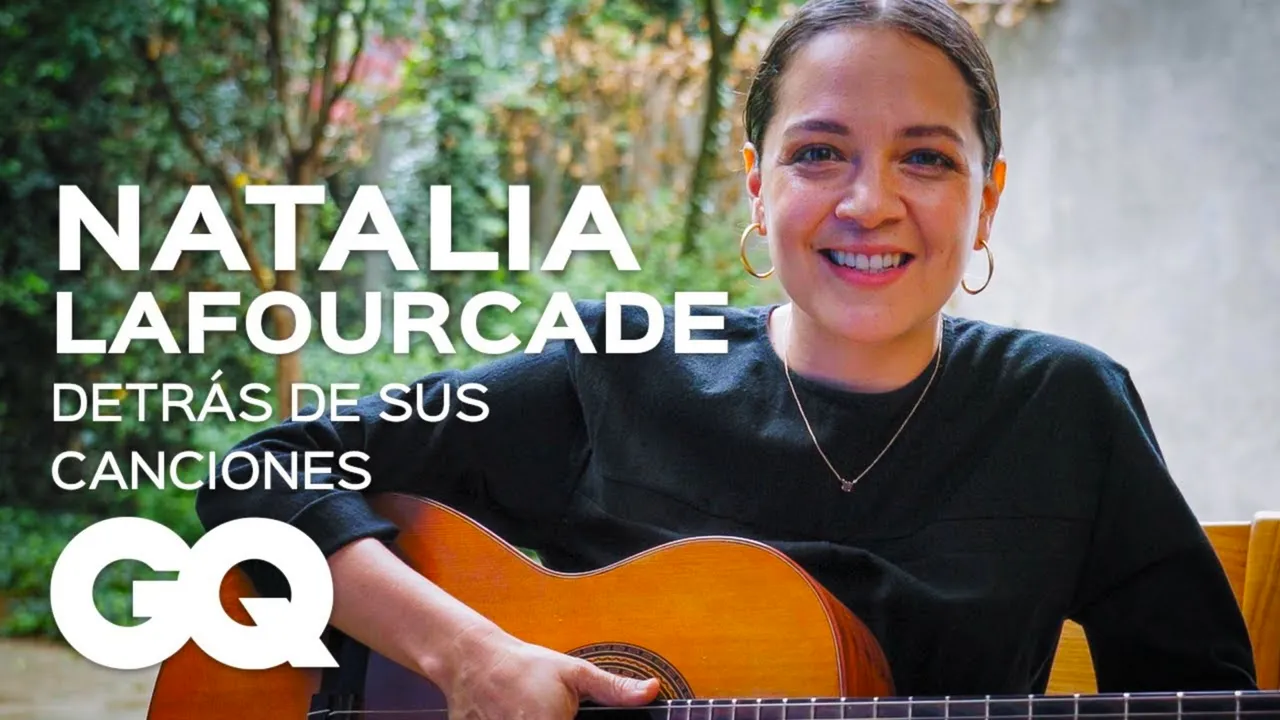
Source | Fuente
Start with a simple idea. Don't try to write a complex composition right away. Make a simple melody or chord progression and develop from there. Use a DAW (digital audio workstation) to help you compose your music. This can make it easier to record your ideas and experiment with different sounds. Don't be afraid to break the rules. The musical language is a great starting point, but don't be afraid to experiment and try new things. Enjoy the process, creating should be enjoyable and should not create stress or tension. When we feel comfortable during the process, the end result is much more enjoyable.
Comienza con una idea simple. No intentes escribir una composición compleja de inmediato. Realiza una melodía simple o una progresión de acordes y desarrolla a partir de ahí. Usa una DAW (estación de trabajo de audio digital) para ayudarte a componer tu música. Esto puede hacer que sea más fácil grabar sus ideas y experimentar con diferentes sonidos. No tengas miedo de romper las reglas. El lenguaje musical es un gran punto de partida, pero no tengas miedo de experimentar y probar cosas nuevas. Disfruta del proceso, crear debe ser agradable y no debe generarte estrés ni tensiones. Cuando nos sentimos cómodos durante el proceso, el resultado final es mucho más placentero.
"Music can name the unnameable
and communicate the unknown."
“La música puede
dar nombre a lo innombrable
y comunicar lo desconocido.”

Leonard Bernstein

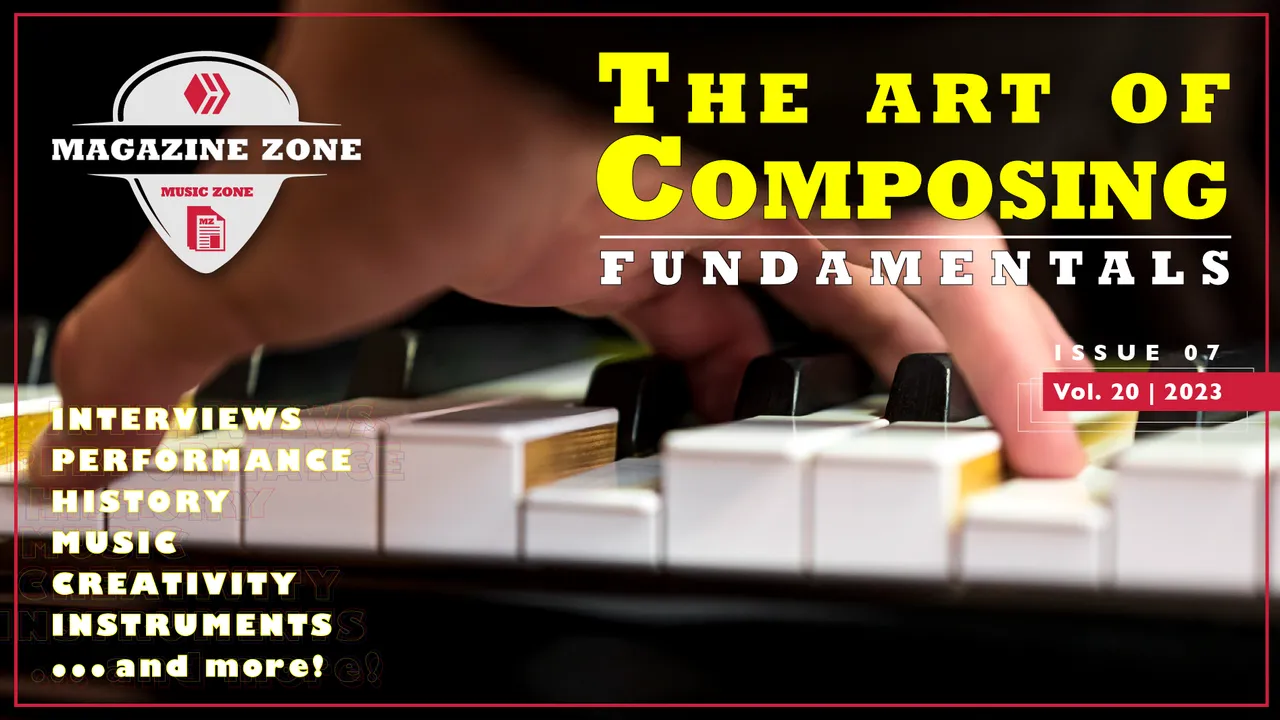

Previous volumes
Volúmenes anteriores
Issue 01 | Edición 01
 | Editorial -Vol. 01 |
|---|---|
 | Interview with Jasper Dick - Vol. 02 |
 | The Musical Language Evolves - Vol. 03 |
Issue 02 | Edición 02
 | Women's Musical Props - Vol. 04 |
|---|---|
 | Elements of music - Vol. 05 |
 | Digital Dialogue with Nahu Padilla - Vol. 06 |
Issue 03 | Edición 03
 | Musical Performance - Vol. 07 |
|---|---|
 | Musical melody - Vol. 08 |
 | Musical Rhythm - Vol. 09 |
Issue 04 | Edición 04
 | Musical Harmony - Vol. 10 |
|---|---|
 | Musical Branding - Vol. 11 |
 | Visual Identity for Musicians - Vol. 12 |
Issue 05 | Edición 05
 | For Practice Visual & Musical - Shakira "Acróstico" - Vol. 13 |
|---|---|
 | Performance in House - Vol. 14 |
 | Social Impact of Music - Vol. 15 |
Issue 06 | Edición 06
 | The Essence of Tuning |
|---|---|
 | Singing - Vocal Preparation |
 | Sing Your Heart Out |
Issue 07 | Edición 07
 | Conceptual Music Art |
|---|

🔸


Delega en la cuenta @musiczone, y ayuda a recompensar a los autores con un mayor voto.
Aquí algunos enlaces para delegar usando Hivesigner
Delegate to the @musiczone account, and help reward authors with a higher vote.
Here are some links to delegate using Hivesigner

We invite you! | Te invitamos
Music Zone
©2023 - Todos los derechos reservados
©2023 - Todos los derechos reservados



